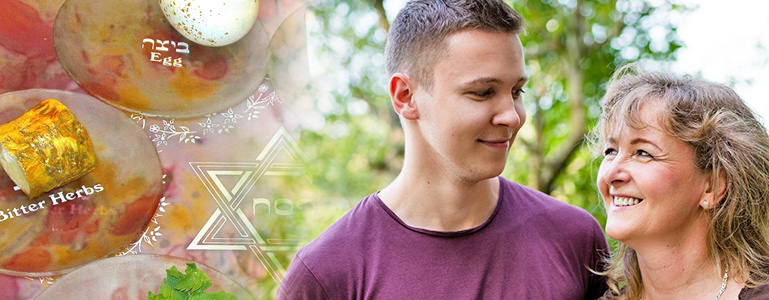By Heidi Emberling, MA, Parent Educator and Early Childhood Specialist at Parents Place in Palo Alto
After 18 years, my son is ready to move out and experience the freedom and independence of life beyond high school. No more parent curfews, asking for the car keys, or begging for money for yet one more extra large pizza. He’s on the precipice of life without mom and dad, and will have to find his own way through the wilderness. I was reflecting on this major life transition during our recent Passover Seder, as we remember the Jewish people’s transition from slavery to freedom. Of course, my son isn’t really escaping slavery and he’s had 18 years to prepare for this journey, plenty of time for bread to rise, but still, it’s a big transition for a first-born son, who’s been protected (maybe too much?) in the family home. Soon, he’ll be stepping out the front door, and I will experience the bittersweet moment of pride in the man he will become, as well as tears because I have to let him go.
As I look at the Seder plate, I notice the shank bone and think about the sacrifice we all make as parents to our children. Our lives become enmeshed with their struggles and achievements. Our arms reach out when they need us, and even when they don’t. We learn to make decisions that put their needs first, if only to live a more harmonious life. They love us unconditionally, scream at us when we disappoint them, fight us when we set limits and boundaries, and struggle between dependence on us, and independence from us, every step of the way.
The egg speaks to me of the cycle of life. The sacrifices we’ve made since children entered our family life and the joy they brought with them. It represents the un-hatched potential and promise of my son’s next stage of life. In some cultures, the egg is also seen as a symbol of fertility, luck, and wealth—all things I wish for my son (not too fertile too early, of course). And it symbolizes rebirth and renewal as he continues to grow and develop into his own person.
The parsley dipped in salt water represents the tears of the Israelite slaves. I have to be honest, my first association was a hope that my son continues to eat fresh vegetables. I remembered my first year leaving home and the countless ramen bowls and late night pizzas I crammed into my mouth. I suppose that can’t be avoided, but still I wish that a salad bar won’t be too hard to find. Whenever I dip the parsley into the salted water, I wait for the tingle on my tongue that indicates something isn’t right. The salt symbolizes tears and I know there’s a big cry waiting for me in just a few months.
Like many Jews, I adore horseradish, so it’s difficult to equate it on the Seder plate with the bitterness of slavery. I try to use a whole horseradish, instead of a scoop from a jar, so I can be bitter about not being able to eat it easily. My son isn’t a big fan of horseradish or gefilte fish, so I know I’ve failed somewhat as a Jewish mom, but at least he can identify it in the grocery store, if only to avoid it in the future. When I look at the horseradish this year, however, I am reminded of all the times I was angry and upset with him. The memories of his challenging behaviors, the oppositional retorts, the slamming and locking of his bedroom door—all come flooding back to me. Parenting is one of the most humbling of life’s experiences. It’s mind-boggling how quickly such a tiny person can exert such a huge influence over our feelings and behaviors.
And finally, the Haroset, the sweet apples, nuts, and wine mixture that provides a counterbalance to the bitter herbs. The combined matzoh sandwich with the Haroset and the horseradish is the pièce de résistance of the Seder plate experience. This remarkable blend of bitter and sweet, representing slavery and freedom, is the culmination of our initial parenting journey. As parents, we are asked to provide love and guidance, limits and boundaries, patience and understanding. We strive to be responsive and adaptable, supportive and encouraging. We dream for their future, and then let them go, unfinished and possibly a little anxious. And we hope they are faithful to themselves as they create their new independent identity and find their own community in the wide world that awaits them.
Seeking resources to help your child thrive? Attend a workshop, schedule a parent education meeting, or schedule an assessment with one of the Child and Adolescent Specialists at Parents Place.
Heidi Emberling, MA, Parent Educator, Early Childhood Specialist, does individual consultations for families with young children, birth through elementary school. She also teaches workshops on a wide variety of topics, including managing challenging behaviors, positive discipline, toilet learning, sleeping issues, understanding temperament, social and emotional development, and sibling/peer relationships. Heidi also provides in-home and early education behavioral observations and teaches staff development workshops for early education professionals. Heidi has two Master’s Degrees: one from the University of California, Berkeley, and the other in Education, with an emphasis in Early Childhood Education, from San Francisco State University.

